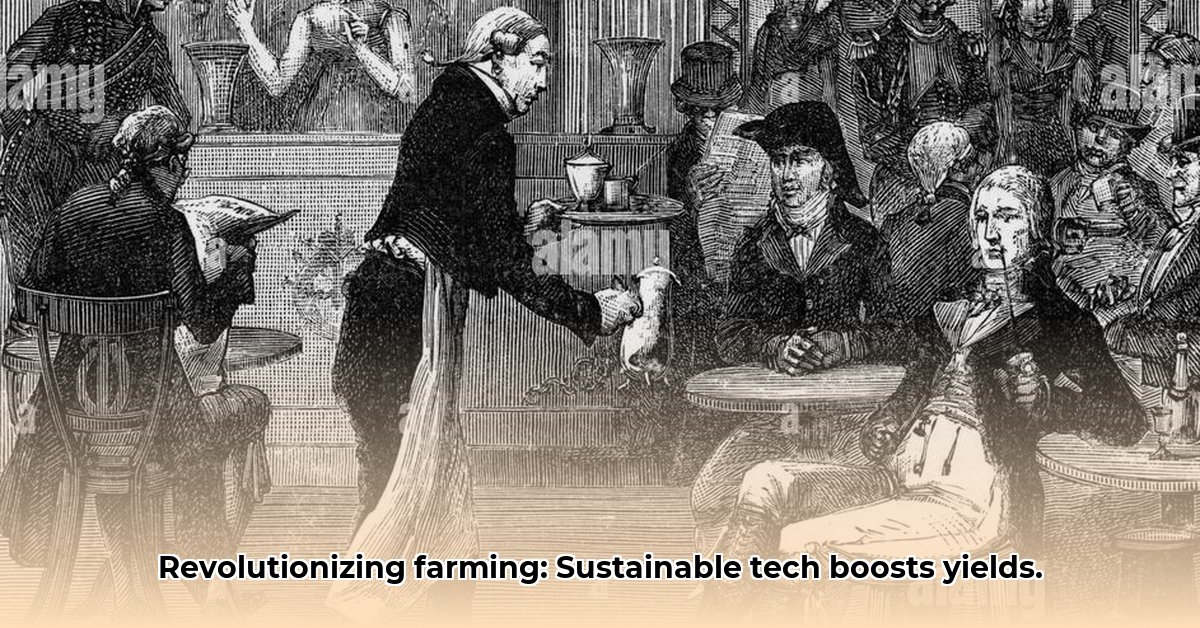
Corriher Tractor Lenoir offers more than just tractors; they provide solutions for the challenges faced by modern farmers in the Lenoir area. This article explores how Corriher Tractor Lenoir helps farmers increase yields while embracing sustainable agricultural practices. We'll examine the technology they offer, discuss the economic benefits of sustainable farming, and explore how farmers can partner with Corriher Tractor Lenoir for long-term success. For more information on the cost of new equipment, check out this resource on tractor pricing.
Modern Tractors: Precision and Efficiency
Gone are the days of inefficient, resource-intensive farming. Today's tractors are precision instruments, designed to maximize yields while minimizing environmental impact. These machines integrate technologies like GPS guidance and controlled spraying systems for efficient resource utilization. This precision agriculture approach ensures fertilizers and pesticides are applied only where needed, reducing waste and protecting the environment. But how does this translate to better yields and cost savings? Let’s find out.
Precision Farming: Optimizing Resource Use
Precision agriculture techniques, likely offered through Corriher Tractor Lenoir, represent a paradigm shift in farming. GPS-guided tractors, for example, allow for pinpoint accuracy in planting and spraying, eliminating overlap and reducing chemical waste. Soil sensors provide real-time data on nutrient levels, guiding fertilizer application for optimal plant growth. This data-driven approach ensures resources are used efficiently, leading to increased profitability and environmental responsibility. Isn't maximizing yield while minimizing environmental impact the ultimate goal?
Fuel Efficiency: Lower Costs, Smaller Footprint
Fuel costs represent a major expense for farmers. Modern tractors boast significant improvements in fuel efficiency, reducing operating costs and lowering carbon emissions. Corriher Tractor Lenoir likely offers a range of fuel-efficient models, assisting farmers in selecting the best option for their needs and budget. This translates to direct savings for the farmer and a reduced environmental impact. Shouldn't farmers have access to the most efficient technologies available?
Conservation Tillage: Protecting Soil Health
Traditional tillage methods can lead to soil erosion and degradation. Conservation tillage techniques, often using specialized equipment available through dealers like Corriher Tractor Lenoir, minimize soil disturbance, improving water retention and soil structure. Healthier soil means more productive farms and a reduced reliance on costly inputs. This approach not only protects the environment but also promotes long-term farm stability. Does Corriher Tractor Lenoir actively support this sustainable practice?
The Economics of Sustainability: Long-Term Gains
While adopting sustainable practices may require an initial investment, the long-term financial benefits are substantial. Reduced input costs (fertilizers, fuel), improved yields, and enhanced soil health contribute significantly to a farm’s bottom line. Government incentives and subsidies for sustainable agriculture can further ease this transition. Corriher Tractor Lenoir likely provides guidance on these financial opportunities, assisting farmers in navigating the investment process. Are you maximizing your farm's return on investment?
Choosing the Right Partner: Beyond the Sale
Selecting the right equipment dealer is crucial. Corriher Tractor Lenoir, hopefully, offers more than just equipment sales; they provide ongoing technical support, maintenance expertise, and guidance on sustainable farming practices. This partnership-centric approach fosters a thriving agricultural community. They aren't merely selling tractors – they're building a future for local farmers.
The Future of Farming: Embracing Sustainability
The future of agriculture depends on sustainable practices. Farmers adopting sustainable methods are better prepared to adapt to climate change and meet consumer demand for environmentally friendly produce. Companies like Corriher Tractor Lenoir play a vital role in this transition, providing the tools and expertise to build a resilient and sustainable agricultural sector. Their contribution extends beyond equipment sales; it's about fostering a thriving community for generations to come.
How to Reduce Fertilizer Use in Sustainable Farming: A Step-by-Step Guide
Reducing synthetic fertilizer use is crucial for environmental sustainability and long-term soil health. A multi-faceted approach, combining soil testing, cover cropping, precision agriculture, and integrated nutrient management, is key to successful fertilizer reduction.
Soil Testing: Begin with a professional soil test to assess nutrient levels and pH. This analysis provides the foundation for a tailored fertilization plan.
Cover Cropping: Plant cover crops between cash crops to improve soil structure, prevent erosion, and add organic matter. Legumes, such as clover or vetch, are especially beneficial due to their nitrogen-fixing capabilities.
Precision Agriculture: Utilize technology to optimize fertilizer application. GPS-guided equipment and sensors allow for precise targeting, minimizing waste and maximizing efficiency.
Integrated Nutrient Management (INM): Combine various techniques—organic amendments, reduced synthetic fertilizers—to meet nutrient needs. Consider it a balanced diet for your soil.
Gradual Transition: Gradually reduce fertilizer use over several years, allowing the soil time to adjust and avoiding yield risks. A reduction of 50% or more is achievable within 3-5 years, according to research.
Economic Analysis: Analyze the long-term cost savings associated with reduced fertilizer dependency and weigh them against initial investment costs.
Remember, transitioning to sustainable farming practices is a collaborative effort. Seek guidance from agricultural extension agents, experienced farmers, and researchers, and share your experiences to build a more sustainable future for agriculture.